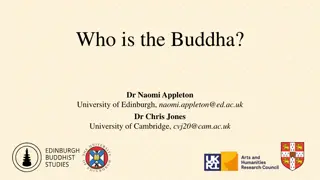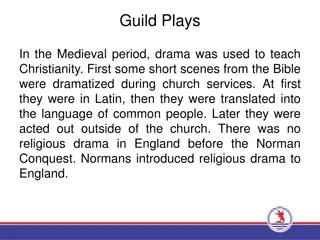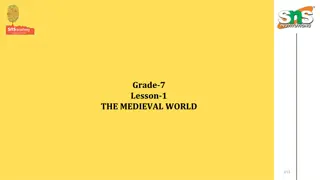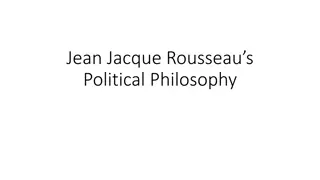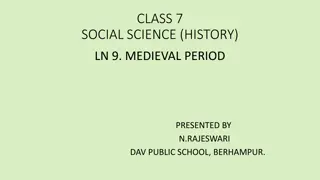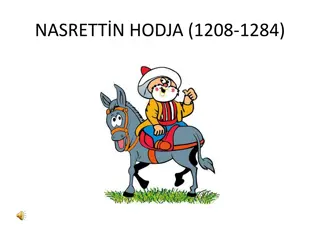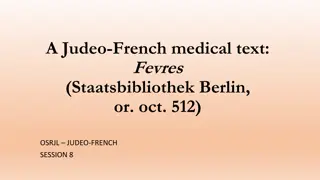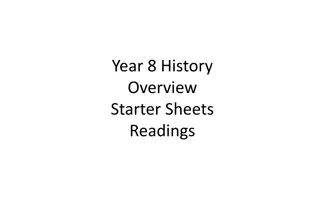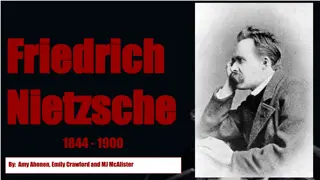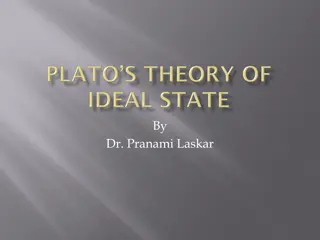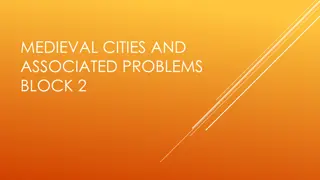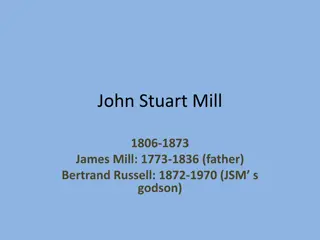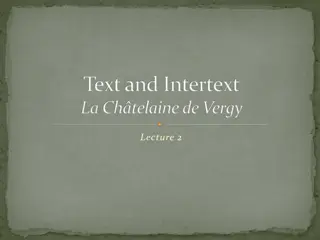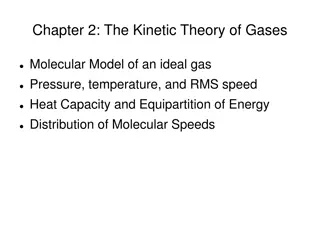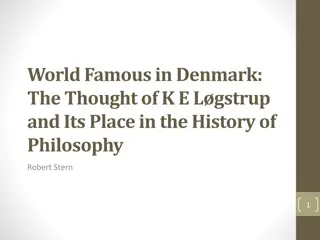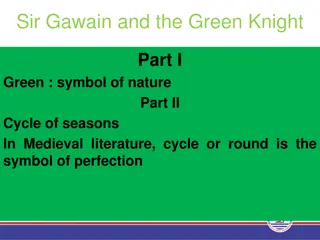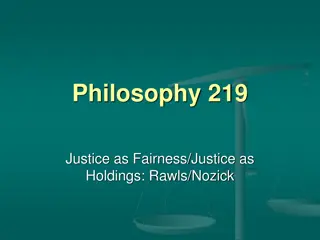Al-Farabi: Influential Medieval Philosopher and His Ideal City Concept
Al-Farabi, influenced by Plato and Aristotle, was known as the Second Aristotle. His works spanned various fields like logic, math, medicine, music, politics, and ethics. He proposed a philosophy involving God as a beginning, being in the middle, and happiness as the end. Al-Farabi delved into the concept of the Virtuous City, contrasting it with the Ignorant City and detailing the principles of achieving a society with high moral standards. He explored the evolution of the social contract from material needs to spiritual and cultural bases. By outlining the structure of the ideal city, he emphasized the roles of philosophers, clergy, artisans, warriors, and merchants.
Download Presentation

Please find below an Image/Link to download the presentation.
The content on the website is provided AS IS for your information and personal use only. It may not be sold, licensed, or shared on other websites without obtaining consent from the author.If you encounter any issues during the download, it is possible that the publisher has removed the file from their server.
You are allowed to download the files provided on this website for personal or commercial use, subject to the condition that they are used lawfully. All files are the property of their respective owners.
The content on the website is provided AS IS for your information and personal use only. It may not be sold, licensed, or shared on other websites without obtaining consent from the author.
E N D
Presentation Transcript
Al-Farabi Influenced by Plato and Aristotle; Often was called as Second Aristotle Works on logics, math, medicine, music, political and ethical themes; Travelled a lot: Cairo, Bagdad, Alexandria, etc.
Al-Farabi Philosophy: God as a beginning; Being as in the middle; happiness as an end. Virtuous City vs Ignorant City: society that obtains happiness; V.City of high moral standards, where units are combined by love, solidarity and fairness; How to achieve? Knowledge of vices and virtues, intentions and actions based on those; Social contract and enlightenment;
Al-Farabi At the beginning social contract is based on material needs to obtain and survive; Later spiritual and cultural bases of social communication; Help and assistance; Order of the Universe and order in the city;
Al-Farabi Structure of the ideal city: 1) Most decent (virtuous) people philosophers; 2) Orators clergy, poets. musicians; 3) Measure men- doctors astrologists, geometric; 4) warriors; 5) Wealthiest merchants, agrarians, etc.


